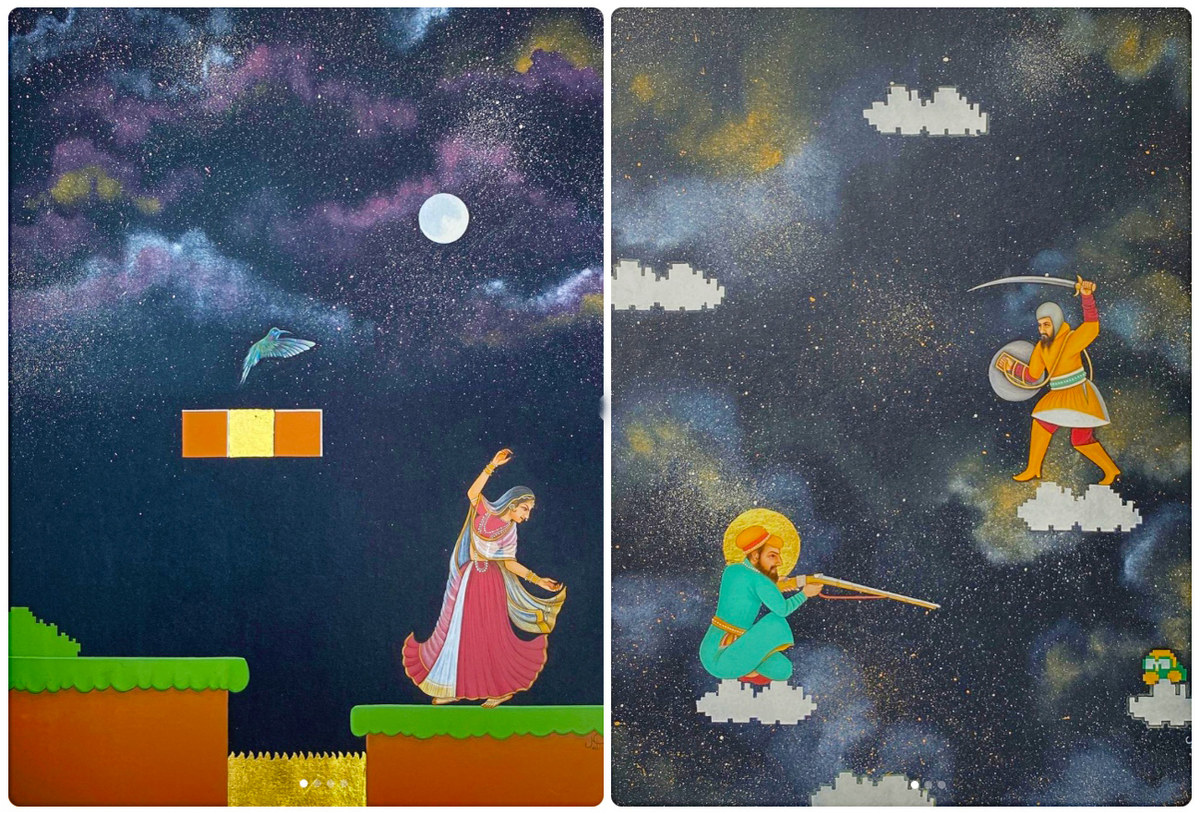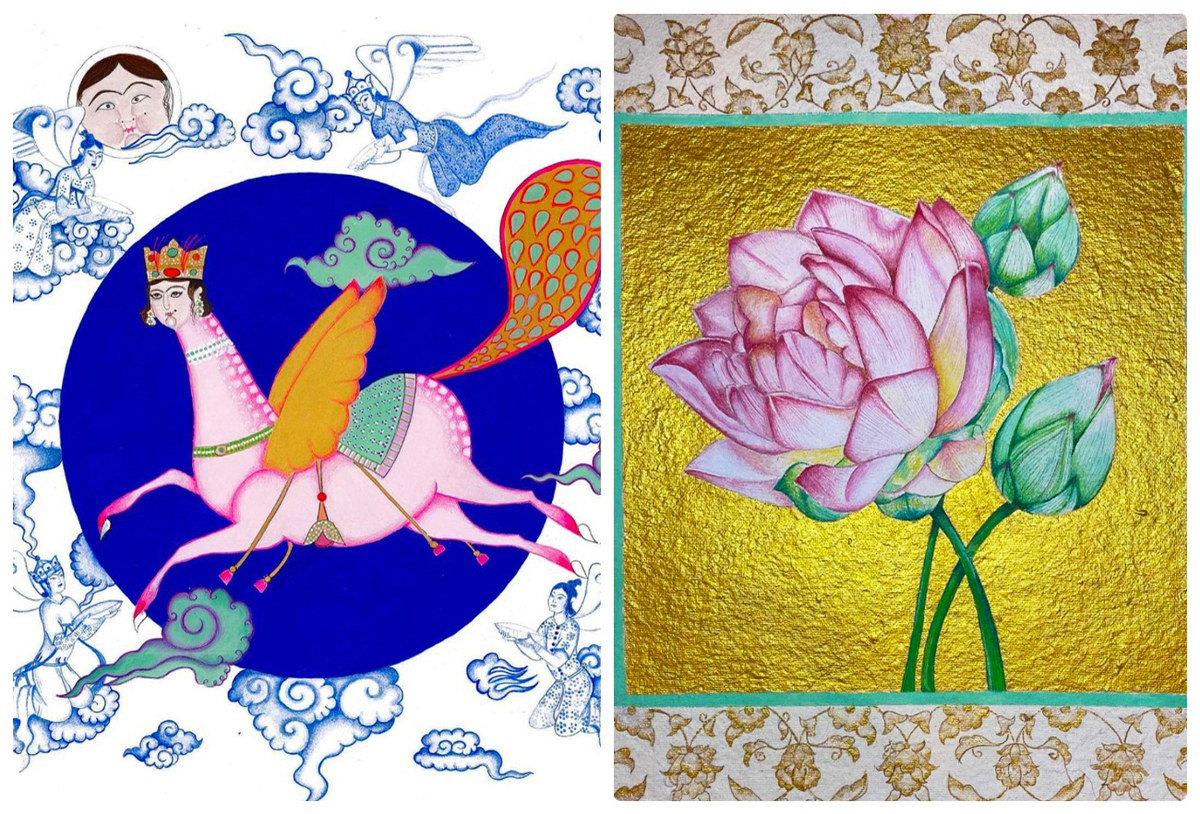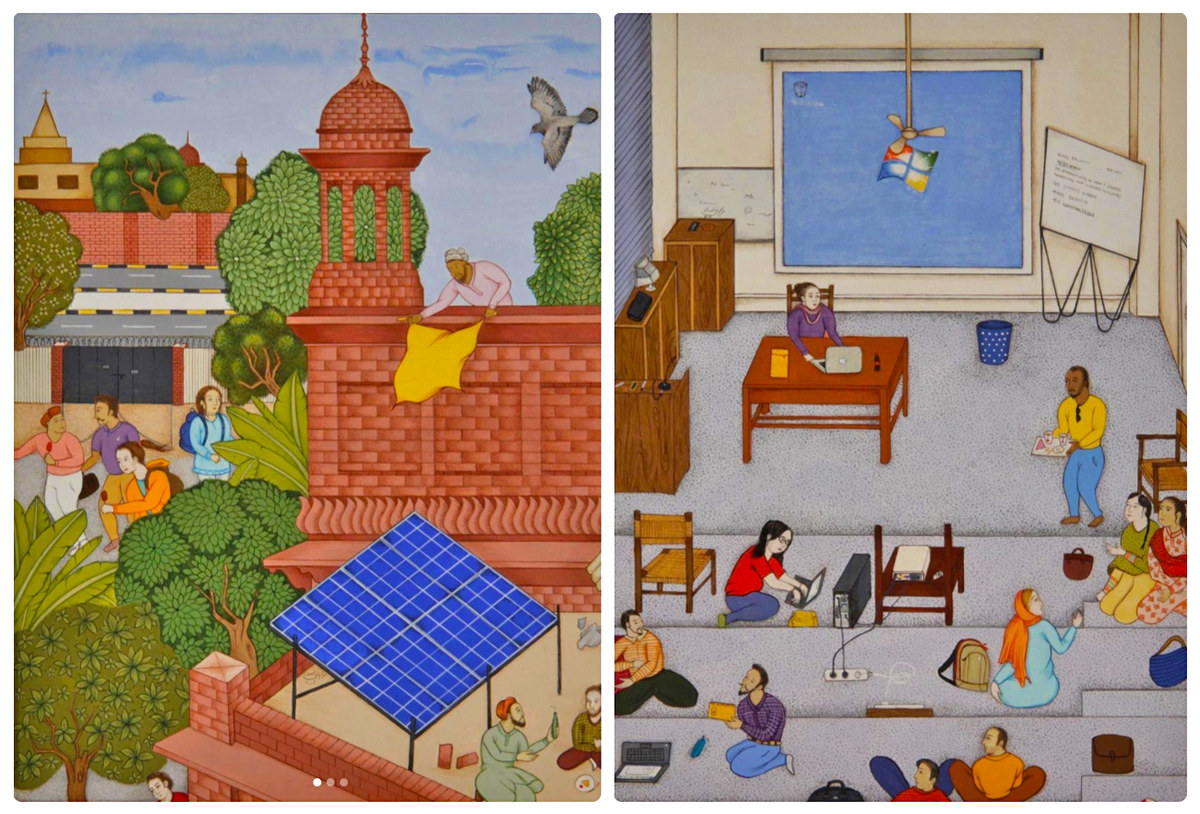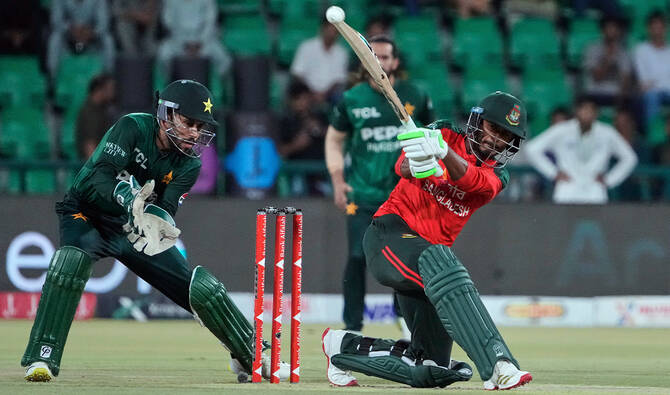ISLAMABAD: The language of centuries-old traditional miniature painting is drawing renewed attention among young Pakistani artists who find in it a departure point to make work exploring contemporary realities.
Miniature masters in the Indian Subcontinent began to capture the complex stories of scriptures and people as early as in the ninth century. Some of their paintings accompanied Buddhist, Hinduist, Jain and Muslim religious texts, some other illustrated secular literature — romances, dramas, poems. Calligraphy also often played role in them, and their painted borders, or illuminations, can be as intricate as the images themselves.
Art dealers would often unbind these illustrations and sell them separately, which is how they became popular and highly sought after at the international market, where they were admired and collected by people as various as Rembrandt and the Empress Maria Theresa of Austria.
The art of miniature painting in the Subcontinent was perfected under Mughal rulers between the 16th and 19th centuries. The legacy of their court painters has inspired not only renowned Pakistani artists such as Shazia Sikander, Imran Qureshi, and Aisha Khalid — the pioneers of the neo-miniature movement — but also emerging creators who give a contemporary and personal spin to the classic form.
Jahanzaib Akmal, who studied art at the National College of Arts in Lahore, has created his own signature style by combining miniature painting with his love for video games.
His works depict Mughal rulers in video game landscapes reminiscent of the classic Mario Brothers by Nintendo or the 1980s hit Space Invaders.
“A mixture of games and miniature paintings is how I understand a contemporary visual language,” the 28-year-old artist from Quetta, Balochistan, told Arab News. “I combined my love for history, games, and art, I came up with a refreshed concept of revisiting the eight-bit games and the Mughal Emperors for our recent generations to relate to.”
“Miniature paintings hold a very special place in the artworld. They are perceived as prestigious. The imagery has evolved over the years, with many artists doing their part and adding their spin to it.”

Contemporary miniature work by Jahanzaib Akmal: “Midnight rendezvous” and “Thunder in the clouds,” 2021. (Photo courtesy: Jahanzaib Akmal)
Former lawyer Sohni Farrukh, a 31-year-old artist from Islamabad, quit her job as a lawyer and started taking miniature painting classes last year. She enrolled in a course by artist Komal Shahid Khan and fell in love with the classic form.
“I immediately fell in love with the process and the outcome, though it took me a while to get a hang of the techniques,” she said.
She has been drawn to miniature painting since childhood.
“I first saw miniature art at an exhibition when I was very young and since then have been enamored by it,” she told Arab News. “The intricate process, the traditional aspect, is beautiful to me. It’s almost sacred in its methodology and makes you feel like you’re a part of something bigger than yourself, carrying on and preserving a tradition dating back hundreds of years.”
Farrukh’s plays with saturated colors not found in traditional miniature painting. She draws inspiration both from the centuries-old art and the neo-miniature style, combining them also with Chinese art elements.
“I am greatly inspired both by traditional and neo miniaturists in their technique and subject matter and try to address topics such as gender fluidity and female sexuality, while infusing my work with bursts of color,” she said.

Miniature work by Sohni Farrukh “Our Lady Buraq meets Chand Bibi” and “Pink Lotus with a Halkar border,” 2021. (Photo courtesy: Sohni Farrukh)
Another emerging miniature artist is Iranian-born Maryam Baniasadi, whose family settled in Lahore.
She has trained under renowned miniature painter Bashir Ahmed from the National College of Arts, who encouraged her to explore the form, which she later combined with Persian miniature tradition.

Work by Maryam Baniasadi: “NCA Lahore building” and ” The classroom,” 2018. (Photo courtesy: Maryam Baniasadi)
“Throughout history miniaturist were traveling from Iran to sub-continent and vice versa so for me also I was kind of doing that in a contemporary way,” Baniasadi said.
“I believe this really helped me to come up with my own concepts and connect my roots being Iranian with Pakistan where I am living in and is my second home.”



















